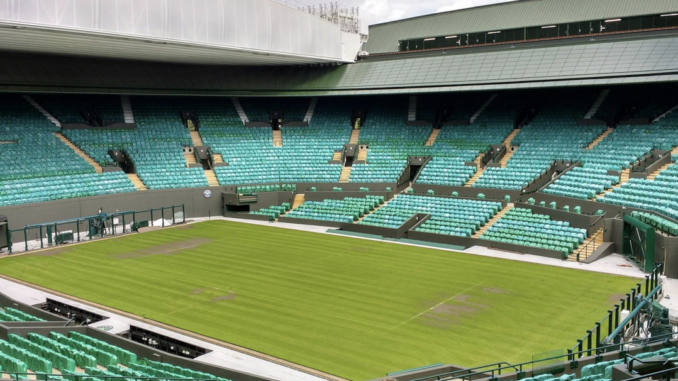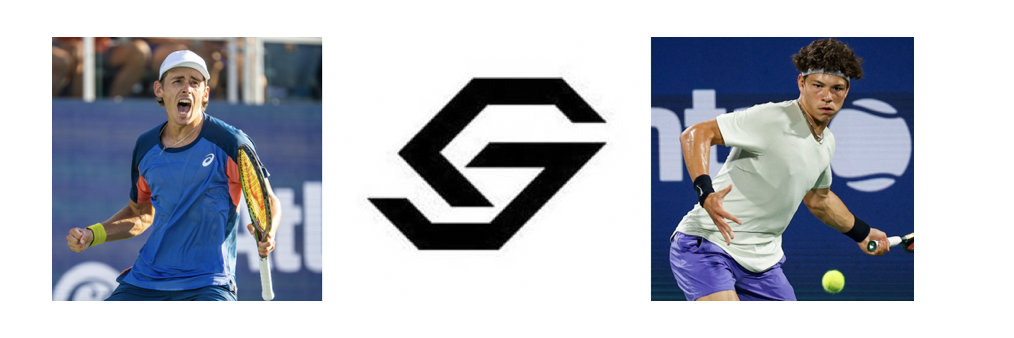
Tennis and poker may seem worlds apart, but for some tennis stars, the transition from the court to the felt has been a natural progression. Both pastimes require otherworldly mental fortitude, as well as handling the harshest of pressures under the brightest of lights. While one is a lot less physically demanding than the other, both require elite mentalities and discipline, allowing players to seamlessly make their way from the lush lawns of the All-England Club to the slick tables of the poker world.
Boris Becker
German prodigy Boris Becker dominated on the court throughout the 1980s and early 1990s, picking up six Grand Slam titles along the way. He burst onto the scene at Wimbledon in 1985, knocking out a whole host of ranked players such as Joakim Nyström, Timothy Mayotte, and Anders Järryd to secure his spot in the final at just 17 years of age. In the Centre Court showpiece, he dispatched American Kevin Curren to become the youngest man in history to win the gold, becoming the first qualifier to claim the top prize to boot.
The following year, he successfully defended his title, before winning both at Wimbledon and the US Open in 1989. His aggressive style and powerful serve led him to pick up two more Slam titles, both coming at the Australian Open in 1991 and 1996, with the latter being his final Slam triumph. He retired from the game in 1999 and transitioned into presenting, as well as some ventures including a professional poker career.
The German’s transition to poker wasn’t entirely surprising, given his penchant for strategy and competition. He honed his skills playing poker on several prominent online poker platforms, even becoming an ambassador with one in 2007. Once his craft had been perfected, he made his way into competition play. Becker competed both on the World and the European Poker Tours, racking up well over $100,000 in prize money over the years. His career-best performance was a 49th-placed finish in Berlin, where he pocketed himself a cool €15,000 for his troubles.
Rafael Nadal
Spanish icon Rafael Nadal is without a doubt one of the finest players to have ever picked up a racquet. He is regarded as one of the “Big Three” alongside Roger Federer and Novak Djokovic, an honor bestowed to perhaps the three greatest-ever tennis stars. He has won the second most Grand Slam titles of all time with 22 to his name, two fewer than the aforementioned Djokovic, who is still in the hunt for gold today.
Nadal meanwhile has begun to slow down somewhat. At the ripe old age of 38, he is currently ranked way down in 154th place in the world rankings and has been without a Slam victory since the summer of 2022, when he claimed a record-extending 14th triumph at the French Open with a straight sets victory against Casper Ruud. But as his powers have waned on the court, the Mallorca native has been afforded more and more time to focus on his poker game, providing him with a new arena to showcase his competitive spirit.
The King of Clay’s journey from the court to the tables informally, playing with friends in his home of Manacor. His natural aptitude for the game led him to become a brand ambassador for a top outlet in 2012, following in the footsteps of the aforementioned Becker. While his poker earnings are modest compared to the mighty $134m he racked up in tennis, Nadal has still demonstrated a keen strategic acumen in online competitions.
He discussed his love of playing poker online in a 2015 YouTube interview alongside professionals Vanessa Selbst and Melanie Weisner, with poker pros sharing their amazement at just how many similarities there are between the worlds of poker and tennis.
It seems unlikely that Nadal will now add to his mighty haul of Grand Slam crowns, nor is he in contention to qualify for this year’s upcoming ATP FInals in Turin. Luckily, he has found a new home for his hugely competitive nature.
Yevgeny Kafelnikov
Yevgeny Kafelnikov, a former world number one and Olympic gold medalist, was a versatile and skilled tennis player known for his baseline play and tactical intelligence. After leaving the tennis circuit, Kafelnikov turned his attention to poker, engaging in various tournaments and leveraging his analytical skills.
While detailed records of Kafelnikov’s poker earnings and performances are less documented than his tennis achievements, his transition to poker showcases his affinity for mental challenges. The strategic similarities between tennis and poker have allowed him to apply his on-court insights to poker, where reading opponents and making calculated decisions are crucial.
Kafelnikov’s analytical approach in tennis, characterized by precise shot selection and tactical placements, mirrors the decision-making processes in poker, where calculating odds and reading players’ tendencies are essential for success.


Leave a Reply